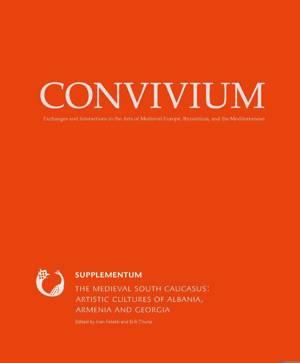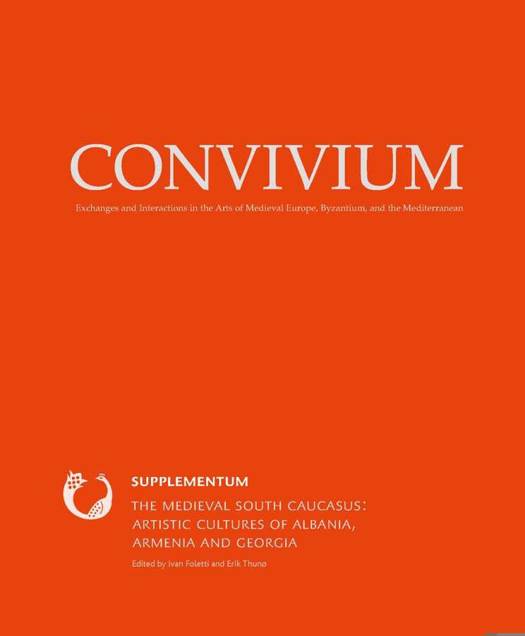
Bedankt voor het vertrouwen het afgelopen jaar! Om jou te bedanken bieden we GRATIS verzending (in België) aan op alles gedurende de hele maand januari.
- Afhalen na 1 uur in een winkel met voorraad
- In januari gratis thuislevering in België
- Ruim aanbod met 7 miljoen producten
Bedankt voor het vertrouwen het afgelopen jaar! Om jou te bedanken bieden we GRATIS verzending (in België) aan op alles gedurende de hele maand januari.
- Afhalen na 1 uur in een winkel met voorraad
- In januari gratis thuislevering in België
- Ruim aanbod met 7 miljoen producten
Zoeken
The Medieval South Caucasus
Artistic Cultures of Albania, Armenia and Georgia
Ivan Foletti
Paperback | Engels
€ 79,50
+ 159 punten
Omschrijving
The volume serves as an introduction to what its editors have chosen to call the "artistic cultures" prevalent during the Middle Ages in the region of the South Caucasus. Although far from comprehensive in terms of material, chronology and geography, the volume intends to raise awareness of a region whose artistic wealth and cultural diversity has remained relatively unknown to most medievalists. Stretching from Eastern Anatolia and the Black Sea in the West to the Caspian Sea in the East, and from the snow-capped Great Caucasus mountain range in the north to the Armenian highlands in the south, medieval southern Caucasia was originally divided into the kingdom of Caucasian Albania, Greater and Lesser Armenia, and western and eastern Georgia, that is, the kingdoms of Lazica (Egrisi) and Iberia (Kartli) respectively. Together, these entities made the South Caucasus a true frontier region between Europe and Asia and a place of transcultural exchange. Its official Christianization began as early as in the fourth century, even before Constantine the Great founded Constantinople or had himself been converted to Christianity. During the subsequent centuries, the region became a well-connected and strategic buffer zone for its neighboring and occupant Byzantine, Persian, Islamic, Seljuk and Mongol powers. And although subject to constantly shifting borders, the medieval kingdoms of the South Caucasus remained an internally diverse yet shared and distinct geographical and historical unity. Far from being isolated, these cultures were part of a much wider medieval universe. Because of the transcultural nature and elevated artistic quality of their objects and monuments, they have much to offer the field of art history, which has recently been challenged to think more globally in terms of transculturation, movement and appropriation among medieval cultures.
Specificaties
Betrokkenen
- Auteur(s):
- Uitgeverij:
Inhoud
- Aantal bladzijden:
- 227
- Taal:
- Engels
Eigenschappen
- Productcode (EAN):
- 9788021083226
- Verschijningsdatum:
- 12/10/2016
- Uitvoering:
- Paperback
- Formaat:
- Trade paperback (VS)
- Afmetingen:
- 213 mm x 259 mm
- Gewicht:
- 793 g

Alleen bij Standaard Boekhandel
+ 159 punten op je klantenkaart van Standaard Boekhandel
Beoordelingen
We publiceren alleen reviews die voldoen aan de voorwaarden voor reviews. Bekijk onze voorwaarden voor reviews.









